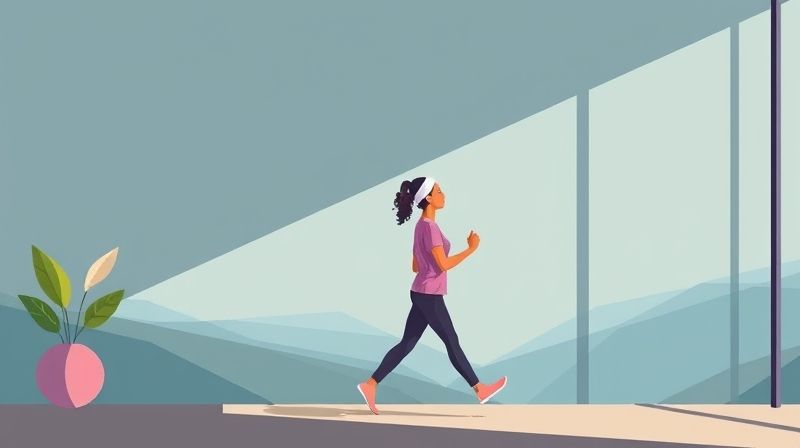Healthy Aging Lifestyle: Prioritizing Physical Well-being

Healthy Aging Lifestyle – Article illustration 1
Physical activity isn’t just about hitting the gym; it’s about incorporating movement into your daily routine. For older adults, this might mean gentle yoga, tai chi, regular walks, or even gardening. The key is consistency and finding activities you genuinely enjoy. These activities not only improve physical health but also contribute significantly to cognitive function and mood. Regular exercise helps maintain balance and strength, directly addressing the issue of falls prevention.
Finding the Right Activities

Healthy Aging Lifestyle – Article illustration 2
Don’t feel pressured to participate in strenuous activities. Start slowly and gradually increase intensity. Consider joining a senior center or a walking group to find social support and motivation. Consult your doctor or a physical therapist to create a safe and personalized exercise plan that caters to your specific needs and abilities. They can help identify suitable activities and address any potential limitations.
Nurturing Cognitive Health
Maintaining a sharp mind is just as crucial as physical health. Engage in activities that stimulate your brain, such as reading, puzzles, learning a new language, or taking up a new hobby. These activities help preserve cognitive function and prevent age-related decline. Social interaction is also key to cognitive health; participating in group activities and maintaining strong social connections helps stave off cognitive decline.
Staying Mentally Active
Challenge yourself regularly with mentally stimulating tasks. Learn a new skill, join a book club, or volunteer your time. These activities not only keep your mind sharp but also provide a sense of purpose and fulfillment. Regular mental stimulation helps maintain memory and cognitive abilities, significantly improving the quality of life in older age.
Cultivating Social Connections
Social isolation is a significant concern for older adults. Maintaining strong social connections is crucial for both mental and physical well-being. Regularly interacting with friends, family, and community members can boost mood, reduce stress, and improve overall health. Joining social clubs, attending community events, or volunteering are excellent ways to stay connected and engaged.
The Importance of Social Engagement
Social interaction combats feelings of loneliness and isolation, which are linked to various health problems. Make an effort to nurture existing relationships and cultivate new ones. Engage in activities that bring you joy and allow you to connect with others who share your interests. This social engagement is a vital component of a healthy and fulfilling lifestyle for older adults.
Integrating Healthy Habits
A healthy aging lifestyle encompasses a holistic approach. This includes a balanced diet rich in fruits, vegetables, and whole grains. Prioritizing adequate sleep, managing stress effectively, and regularly visiting your doctor for check-ups are equally important. These seemingly small habits contribute significantly to overall well-being and help you maintain an active and fulfilling life. By adopting a proactive approach to healthy aging, focusing on physical activity, mental stimulation, social connection, and healthy habits, older adults can continue doing what they love and enjoy a high quality of life for many years to come. Remember, healthy aging is a journey, not a destination.


